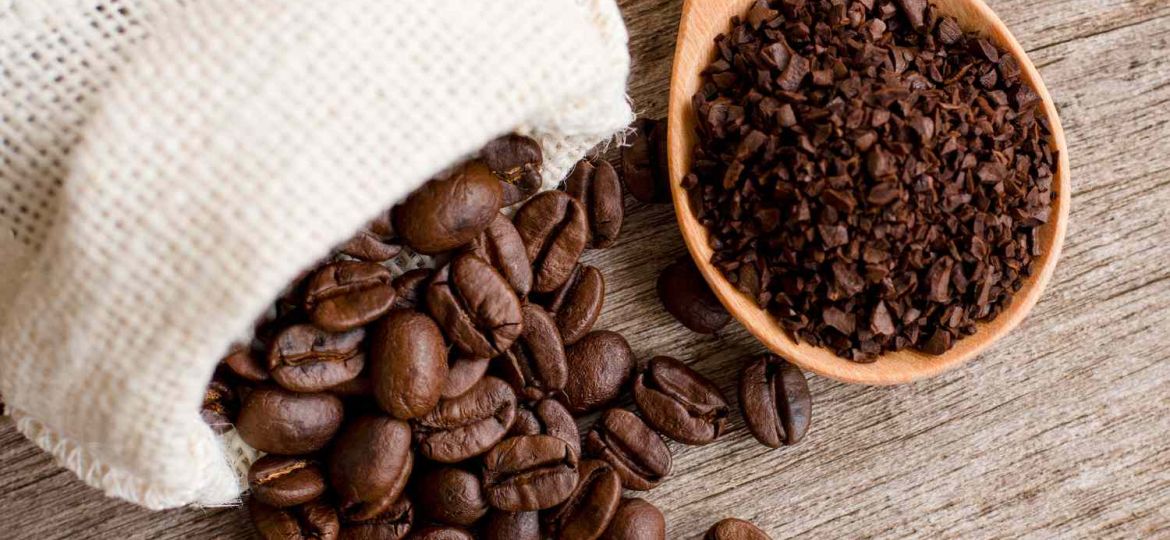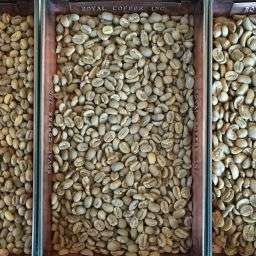
Choosing the best organic coffee beans for espresso is not just a matter of taste, but also an investment in health and environmental sustainability. Organic coffee beans are cultivated without the use of synthetic pesticides or fertilizers, offering a cleaner and more natural flavor profile. This careful selection process ensures that each cup of espresso not only delivers a superior taste but also supports eco-friendly farming practices.
The benefits of organic coffee extend beyond the environmental impact. Organic beans often contain higher levels of antioxidants compared to their conventionally grown counterparts, contributing to overall health benefits such as reduced inflammation and improved heart health. Thus, selecting organic coffee beans for your espresso is a choice that benefits both the palate and the planet.
Why Organic?
The Benefits of Organic Coffee Beans
Environmental Impact: Organic coffee farming emphasizes sustainable practices, including the avoidance of synthetic chemicals and the preservation of soil health. This approach minimizes pollution and ensures the conservation of ecosystems, supporting biodiversity.
Health Benefits: Organic coffee beans are free from synthetic pesticides and fertilizers, reducing the consumer’s exposure to potentially harmful substances. Moreover, these beans are rich in essential nutrients and antioxidants, promoting overall wellness.
Certifications to Look For
USDA Organic: This certification guarantees that the coffee has been produced following strict environmental and health standards set by the United States Department of Agriculture. It ensures the coffee is grown without synthetic pesticides or fertilizers.
Fair Trade: Fair Trade certification focuses on ethical standards, including fair compensation and working conditions for coffee farmers. It also supports sustainable farming practices, ensuring that coffee production contributes positively to the communities involved.
Arabica vs. Robusta for Espresso
When selecting organic beans for espresso, the choice between Arabica and Robusta varieties is crucial. Arabica beans are prized for their smooth, complex flavor profiles, making them the preferred choice for high-quality espresso blends.
Robusta beans, on the other hand, offer a stronger, more robust taste and higher caffeine content. However, for a truly exceptional espresso experience, organic Arabica beans are recommended due to their superior flavor and consistency.
Factors to Consider
Single-origin vs. Blends: Single-origin coffee beans hail from one location, offering unique flavor profiles characteristic of their region. Blends combine beans from various locations, aiming to create a harmonious flavor. For espresso, single-origin can provide a distinct taste experience, while blends offer consistency and complexity.
Roast Level for Espresso: The roast level significantly influences the espresso’s flavor. Dark roasts are traditionally favored for their strong, bold taste, which stands up well to the espresso brewing process. However, medium roasts are becoming popular for those seeking a more nuanced flavor profile with a balance of acidity and sweetness.
Freshness and Roast Date: Freshness is crucial for espresso beans. Always check the roast date, aiming for beans used within a month of roasting. Fresh beans ensure the fullest flavor and most robust crema.
Top Picks for Organic Espresso Beans
- Lifeboost Espresso Organic Coffee: Known for its low acidity and rich flavor, Lifeboost’s Espresso Organic Coffee is a top choice for those seeking a smooth, stomach-friendly option.
- Cameron’s Coffee Organic Espresso: Offers a full-flavored, smooth espresso experience, with beans sourced from environmentally conscious farms.
- Real Good Coffee Company Organic Dark Roast: Bold and spicy, this organic dark roast provides a full-bodied flavor with unique spicy notes.
- Ethical Bean Fairtrade Organic Coffee: Combines quality with sustainability, offering a rich and ethical espresso experience with medium dark roast beans.
- Allegro Organic Espresso Beans Sierra: Medium dark roast with a dark chocolate and caramel profile, perfect for those who prefer a sweeter espresso.
- Subtle Earth Organic Espresso Coffee Beans: Sourced from Honduras, these beans boast a rich, chocolatey flavor with low acidity, roasted to perfection.
Understanding Roast Levels
The roast level of coffee beans has a profound impact on the flavor of espresso. Dark roasts are known for their bold, rich, and often chocolatey or smoky flavors, ideal for a traditional espresso. Medium roasts provide a balance, offering a milder body with more pronounced acidity and a wider array of flavors. Light roasts, less common in espresso, highlight the bean’s original character and acidity but may lack the body and crema desired in an espresso shot.
Flavor Notes and Acidity
The desirable flavor profiles for espresso range from rich and chocolaty to sweet and fruity, depending on the roast and origin of the beans. A good espresso bean should provide a complex and balanced flavor, with acidity playing a key role in its brightness and liveliness. Acidity in espresso is desirable when it enhances the overall flavor profile, adding a touch of brightness without overpowering the cup. It should complement the coffee’s body and sweetness, creating a well-rounded and enjoyable experience.
Whole vs. Pre-Ground Beans
The choice between whole and pre-ground beans is pivotal for espresso quality. Grinding your own beans just before brewing ensures the freshest flavor and optimal extraction, capturing the coffee’s full aroma and essential oils. Pre-ground coffee, while convenient, often loses these qualities quickly after grinding.
Brewing Techniques
For espresso, a high-quality espresso machine is ideal, providing the necessary pressure for extraction. Moka pots offer a more accessible option, producing a concentrated brew akin to espresso without the need for specialized equipment. Regardless of the method, achieving the right grind consistency and water temperature is crucial for the perfect shot.
Water Quality and Temperature
Water quality can significantly affect espresso’s taste. Use filtered or spring water for the cleanest flavor profile. The optimal water temperature for espresso is around 90-96°C (195-205°F), crucial for proper extraction without burning the coffee.
FAQs
- What makes coffee beans “espresso” beans? Espresso beans are typically a dark roast known for their bold flavor, though any coffee bean can be used to make espresso if ground and brewed correctly.
- How long do coffee beans stay fresh after roasting? Coffee beans are best used within a month of roasting to ensure freshness and optimal flavor, though they can last up to three months if stored properly.
- Can I use espresso beans for regular coffee brewing methods? Yes, espresso beans can be used for other brewing methods, such as drip or French press, offering a richer and more intense flavor profile.
- How does the altitude at which coffee is grown affect its taste? Coffee grown at higher altitudes tends to have a more complex flavor profile, with higher acidity and floral, fruity notes due to the cooler growing conditions and slower bean development.
Conclusion
Selecting and brewing the best organic coffee beans for espresso is an art that combines understanding of bean variety, roast level, and brewing technique. This guide has highlighted the importance of choosing organic, the benefits of grinding your own beans, and the nuances of brewing the perfect espresso.
Experimenting with different beans, roasts, and brewing methods can lead to discovering your ideal espresso profile. Embrace the journey of exploring the rich and diverse world of organic espresso coffee beans to elevate your coffee experience.









